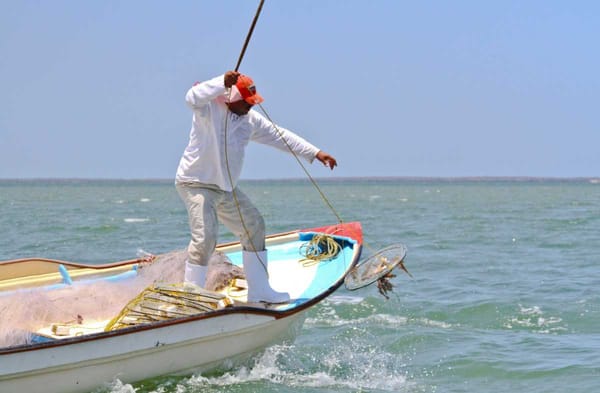The Death of Prosecutor Alberto Nisman: A Labyrinth of Contradictory Testimony
Nisman was found shot in the head on January 18, 2015, in the bathroom of his house, a day before he could file a formal complaint with the National Congress against the President.

In Argentina, there are two main hypotheses about Nisman's death. One is that the prosecutor committed suicide under the pressure of having to present his accusation to Congress because he did not have solid evidence. Another is that Nisman was killed because he had strong evidence that the government was trying to cover up for Iran.
Nisman was found shot in the head on January 18, 2015, in the bathroom of his house, a day before he could file a formal complaint with the National Congress against then-President Cristina Fernández de Kirchner for covering up for the masterminds of the attack on the AMIA on July 18, 1994.
Argentina is once again facing one of the darkest chapters in its recent history: the death of prosecutor Alberto Nisman in 2015, who was investigating the attack on the Argentine Israeli Mutual Association (AMIA) in Buenos Aires. The premiere of a documentary on Netflix revives the enigmas surrounding his death, in a country where there is no lack of concern, both economic and political, in 2020.
Nisman was found shot in the head on January 18, 2015, in the bathroom of his house, a day before he could file a formal complaint with the National Congress against then-President Cristina Fernández de Kirchner for covering up for the intellectual authors of the attack on the AMIA on July 18, 1994.
That terrorist attack, the bloodiest in Latin American history, left 85 people dead and more than 300 injured. It was preceded by an attack on the Israeli embassy in the Argentine capital on 17 March 1992, which left 22 dead and 242 wounded. At 27 and 25 years respectively, both attacks remain unpunished. And after five years, the death of the prosecutor, which caused a political and social earthquake that calls into question the independence of the country's judicial system, also remains unpunished.
"The main problem in the Nisman case is that the judicial procedures in Argentina do not appear to be solid," Mariana Llanos, a specialist in Argentine politics at the GIGA Institute, told DW. "While this is true in many cases, in a case as serious as Nisman's, these proceedings should be flawless. The other aspect, according to Llanos, is the advances in the policy on Justice, "scandalous" during the government of Carlos Menem (1989-1999) when the attack on the AMIA was carried out. "It seems that the truth has not been found in the Nisman case," he adds, "and that justice has been lost in the twists and turns, in the labyrinths of the past.
Different hypotheses, but impunity continues
In Argentina, there are two main hypotheses about Nisman's death. One is that the prosecutor committed suicide due to the pressure of having to present his accusation before Congress because he did not have solid evidence. Another is that Nisman was killed because he had strong evidence - in the 289-page memo he prepared against Cristina Kirchner - that the government was trying to cover up for Iran.
"There is no solid evidence that Nisman was killed," says Leandro Morgenfeld, a historian and researcher at the University of Buenos Aires and author of 'Dangerous Relations: Argentina and the United States, in an interview with DW. "If you pay for the theory of murder, you have to think about who benefits from that theory.
It did not benefit the government of Cristina Kirchner, which was, in fact, the main victim," he explains. "I think it was a suicide - induced or not - but there is no judicial evidence that it was a murder. In Morgenfeld's opinion, "although the Argentine justice system is inoperative in this case, what is behind the attack on the AMIA and Nisman's death are geopolitical interests".
In any case, it is worth asking how it is possible that in a country like Argentina, where the most aberrant crimes of the last military dictatorship were solved, there is still no clarity about the death of a public prosecutor.
"Argentina is not exemplary in the clarification of crimes against humanity because of its justice system, but because there was, and is, enormous social pressure to try those guilty of state terrorism and to prevent impunity. In the AMIA case, there was also this social pressure. But in Nisman's case, there is a political use of the cause due to internal factors that have meant that the truth has not been reached so far," he says.
Laura Ginsberg: "an independent commission of inquiry" should be formed
Laura Ginsberg, a member of the Association for the Clarification of the Impunity of the AMIA Massacre (APEMIA), told DW that Nisman was part of "the policy of covering up who was responsible for the attack on the AMIA, a cover-up that has been going on for 25 years. According to her, "It was Nisman who articulated and guided the international connection and put us in an almost warlike context where we had to go after the axis of evil, i.e. Iran. All this, at the service of interests that have nothing to do with those who are truly responsible, who are here, in Argentina". "The bombing of the AMIA was an operation controlled by the SIDE (State Intelligence Services, now AFI), not by Iranian intelligence," he says.
"The political crime against the AMIA will not be solved through legal means either, for the simple reason that the responsibility lies with the Argentine State," he says. Laura Ginsberg says she hopes that the AMIA and Nisman cases will be cleared up, not by the state, but by forming an independent investigative commission. The truth can be known. But we must abandon the legal avenues that have already failed," he says.
"Nisman's death is taking place in a context of political polarization," says Mariana Llanos. "There is a great possibility that the truth will escape. From inefficiency, lack of ethics, corruption, and on the web, the long-term objective is lost. Each actor responds to their immediate interests, something that unfortunately always happens in Argentina". In his opinion, in the 80s, after the recovery of democracy, Argentina was united to cement its institutions. During the 90s, institutions, and justice began to be instrumentalized, while "in Germany, for example, nobody would think of instrumentalizing the rule of law for a judicial case".
The Nisman case and the new Argentine government
The objective of Justice, in the Nisman case, and the AMIA case, should always have been to know the truth, beyond political interests, and whoever falls should fall. But blind spots and contradictions continue to obscure the way. Alberto Fernandez said in 2017 about Nisman's death: "I doubt that he committed suicide. But he questioned whether the complaint against the then Argentine president could be substantiated with evidence. At the time, he was far from Cristina Kirchner, has resigned as chief of staff in 2008.
Today, the new Argentine president seems to have changed his mind, and questions the Gendarmerie's expertise, saying it "seems to lack all scientific rigor. Thus, he joins those who distrust the hypothesis of the crime. On Wednesday (January 1, 2020), Alberto Fernández told Clarín newspaper: "The accumulated evidence does not suggest that there was a murder. However, neither does he believe in the hypothesis of suicide. Security Minister Sabina Frederic even called for a review of the case. This generated criticism from the opposition and Nisman's relatives. Cristina Fernández de Kirchner still maintains that it was a suicide. Alberto Fernandez now can clarify it by establishing an independent commission.
"If Argentina wants to know the truth about the Nisman case, it still has a chance," says Llanos. "But it is important to have genuine information, not to lose focus on the truth, and to ask the right questions, avoiding positions that have political content. A polarized political framework does not seem to me to be the most conducive to finding the answers," she concludes.




